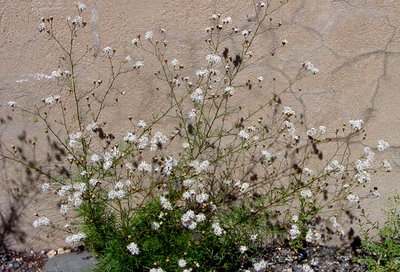
Summer went out with a floral flourish! I've been collecting pictures for the past four weeks during which we had good rains; now the world is quickly drying out. At Prescott elevations (we have several), flowers go to seed quickly and dry out, even before our first frost.
Now for all the IDs. Up top is a nice stand of Wright's beeflower, a member of the sunflower clan, if you can believe it!
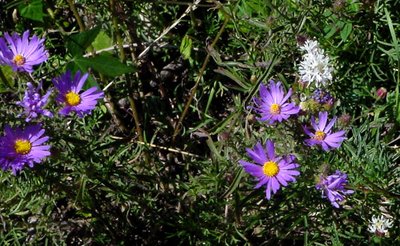
Here is a Wrights mingling with local purple asters that have blossomed profusely this summer.
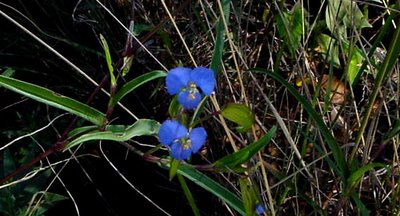
If you've been lucky (and ventured into shady or moist places), you might have spotted pretty little bright blue flowers. Name: blue dayflower, related to the common spiderwort (below). Curiously enough, I've seen one heckuva lot more dayflowers than spiderwort around Prescott and environs. Just as well -- we have only a couple of other true blue wildflowers.
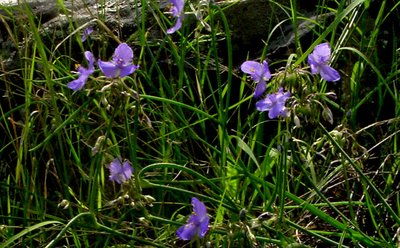
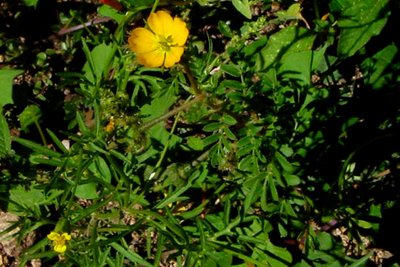
I've checked all my field guides -- and still haven't found out what this little yellow buttercup- looking flower might be. Can you help me?
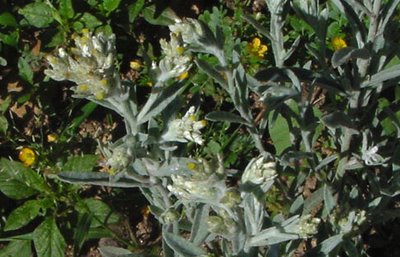
A common late summer plant: the Arizona cudweed. The name sure sounds suggestive.
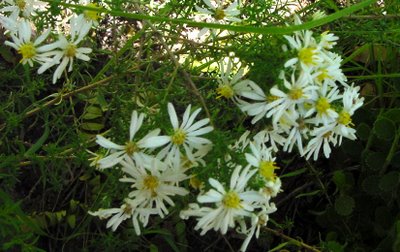
The white aster blooms far more abundantly than its purple cousin. One reason is that it spreads rapidly via stolens (underground stems) unlike the purple, which depends upon seeds. Both asters are perennials.
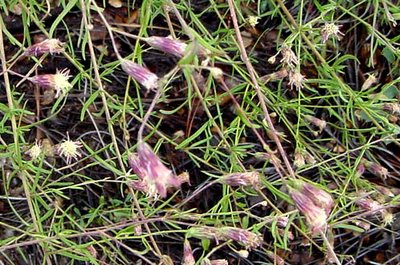
Hardly spectacular, this brickella is nonetheless widespread in the Prescott area in the late summer. Another composite, like the sunflower.
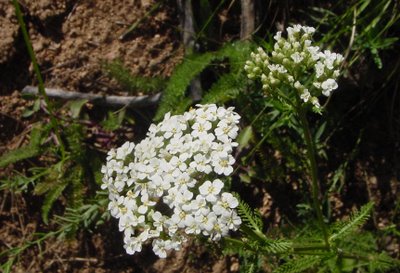
The yarrow is beloved by herbalists for various concoctions and is the source of millefoil tea. It -- and the blossoms that follow -- are all opportunistic plants that bloom whenever there's been enough water. Most have already bloomed at least once this year. (Note: sorry if anybody was misled; I mistakenly identified the plant as mullein...I stand corrected! Good Wikepedia article here.)
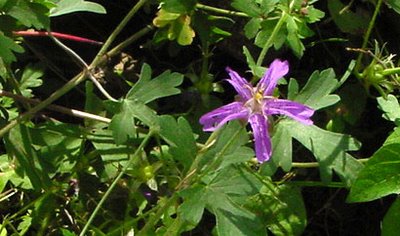
The wild geranium likes water and shade; our local variety isn't quite as large as those found up in the Flagstaff area. Another re-bloomer is fleabane, below.
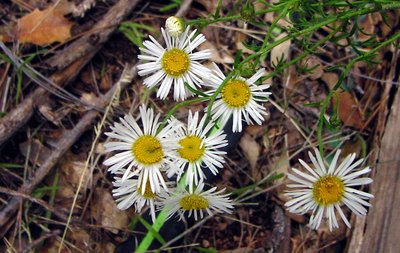
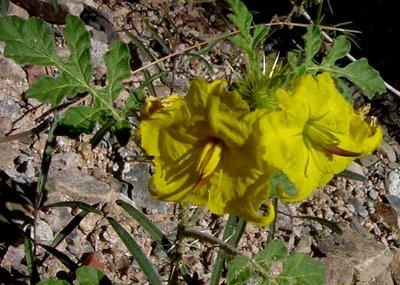
Curious: although there are many species of nightshade and similar plants that grow in upland Arizona, this buffalo burr is the only one I've seen in my wanderings near the center of town.
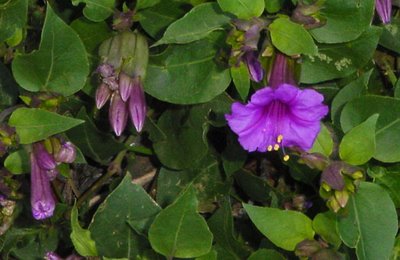
Rocky Mountain 4 o'clock adds glossy green leaves and bright magenta flowers to surprisingly dry locations. If you are ever tempted to transplant one of these beauties, don't. I tried it. I failed. About one foot down, the four o'clock grows a huge, many branched tuber firmly anchored in the bedrock. Besides, it's fairly easy to start from seed.
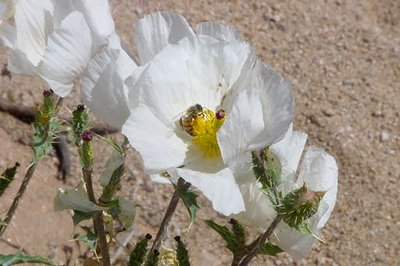
Finally -- can there possibly be a more photogenic flower in the Arizona highlands than the prickly poppy! My late husband, who was an excellent, artistic photographer, couldn't resist any prickly poppy he met. Having taken a couple of shots myself, I can understand the temptation. A true poppy, this plant contains a wealth of alkaloids. And believe in that "prickly" moniker -- handle with tongs!
Not being a huge attention giving "Gardner" I love spiderwort (unlike my husband who thinks it looks like a spindly weed). I think it blooms nicely and for a long time...and is purple...and will grow regardless of abuse and lack of loving care. Thanks for the other lovelies as well!
ReplyDelete